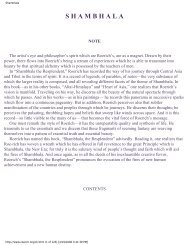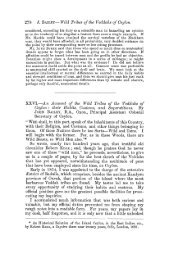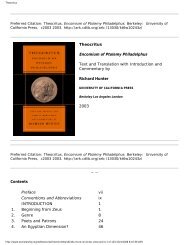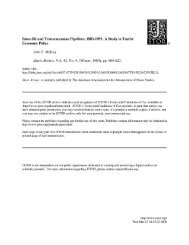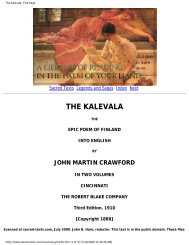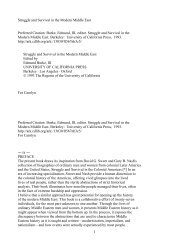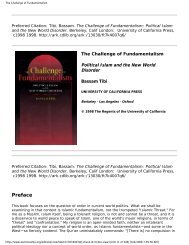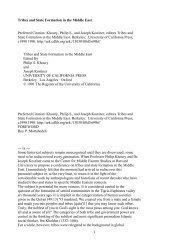Between Two Worlds Kafadar.pdf
Between Two Worlds Kafadar.pdf
Between Two Worlds Kafadar.pdf
You also want an ePaper? Increase the reach of your titles
YUMPU automatically turns print PDFs into web optimized ePapers that Google loves.
sought the alliance of the Byzantine emperor or local Christian or Muslim powers<br />
when it seemed expedient, was ultimately resolved in 1177 in favor of the<br />
latter, who captured their rivals' last major holding, Malatya, and decisively<br />
reduced them to vassalage.<br />
This feat was accomplished only one year after another Seljuk victory, this one<br />
over Byzantine imperial armies in Myriokephalon (1176). This was, in the words<br />
of one of the most prominent scholars of medieval Anatolia, "after an interval<br />
of a century, a replica of Mantzikert, which showed that henceforward there<br />
existed a Turkey which could never be further assimilated."[4] Although the word<br />
"Turchia" indeed appeared in Latin geographic designations in the twelfth<br />
century, from the point of view of the Turkish-speaking populations and polities<br />
of the area, there was no Turkey, either as a geographical or as a political<br />
entity, until the end of World War I, when the European designation was finally<br />
accepted by the locals themselves. Instead, there was a changing set of<br />
competing political enterprises, many of which were led by Turkish-speaking<br />
warrior elites but which were never organized along ethnic lines or with an eye<br />
to eventual ethnic unity. The land was known as the land of Rum , and its people<br />
were divided into different communities of religious, linguistic, or political<br />
affiliation. The Ottoman ruling class eventually emerged as a combination of<br />
Muslims (some by conversion) who spoke Turkish (though not necessarily as a<br />
native tongue), affiliated (some voluntarily and some involuntarily) with the<br />
dynastic state under the rule of the House of Osman. And "Turk" was only one,<br />
and not necessarily a favored one, of the "ethnicities" ruled by that class.<br />
With their victories in Myriokephalon and Malatya behind them, the Seljuks<br />
looked like they had accomplished, "from the Byzantine territories in the West<br />
almost to the further limits of the East, the political unity of Asia Minor."[5]<br />
But to a student of the later and much more solid Ottoman state, like this<br />
author, the rule of the Seljuks of Rum in any period seems too fragile and<br />
ephemeral to be considered real political unity. All the major fault lines of<br />
those medieval Turkic states, built around the energies of tribal forces and<br />
ambitious warrior chieftains, were at work in the sultanate of the Anatolian<br />
Seljuks: there were many frontier zones of various sizes where the<br />
administrative apparatus hardly reached; there were many tribal groups that were<br />
not controlled; there<br />
― 5 ―<br />
were many ambitious warriors, some of them possibly made by the Seljuks, ready<br />
to imagine themselves independent of Seljuk authority; and when two or three of<br />
these came together, as they frequently did, they were able to shake, if not<br />
dissolve, state power. Finally, the Seljuks of Rum also continued the practice<br />
of dividing up their land among the heirs of the dynast; the same Seljuk sultan<br />
who won the two victories mentioned above carved his realm into eleven pieces<br />
for his nine sons, a brother, and a nephew. The realm could still remain united<br />
in principle, under the leadership of a "senior partner" recognized by the<br />
others, but it proved only a matter of time before some of the heirs found<br />
support among Tükmen tribes or warrior bands, and rival loci of power emerged.<br />
As we shall discuss in later chapters, the Ottomans, as if or perhaps because<br />
11




